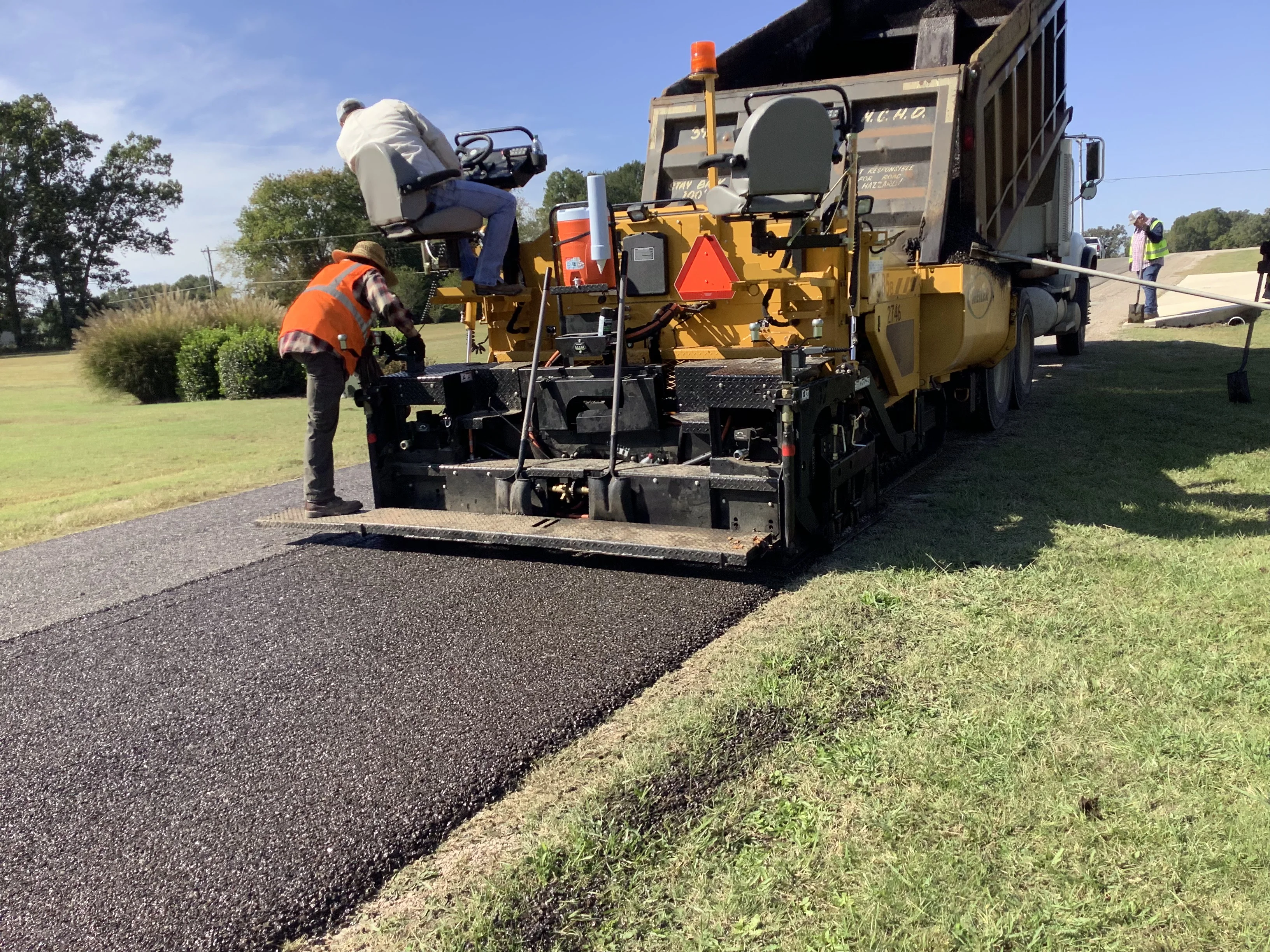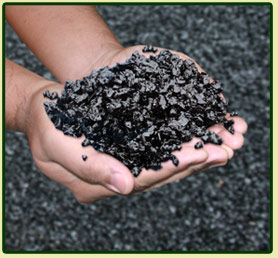Make The Most Of Space and Functionality: Angle Parking with Asphalt Patch Repair
Make The Most Of Space and Functionality: Angle Parking with Asphalt Patch Repair
Blog Article
Cold Mix Asphalt: Changing the Means We Construct Roadways
As the facilities market proceeds to progress, the use of cool mix asphalt provides an encouraging change in road building approaches. Its adaptability to various climate condition and lasting qualities have sparked passion in the building and construction sector. The ingenious residential properties of chilly mix asphalt are challenging traditional road-building techniques, leading the way for enhanced performance and toughness. This transformative product is not only improving the building and construction landscape but likewise raising intriguing inquiries regarding its long-term effect on facilities development (Asphalt Repair).
Advantages of Cold Mix Asphalt
What advantages does cool mix asphalt offer over typical hot mix asphalt in roadway building and construction jobs? Cold mix asphalt gives several advantages that make it a preferred option in particular situations. One crucial benefit is its ability to be utilized in all weather, unlike warm mix asphalt which calls for particular temperature level problems for mixing and laying. This adaptability permits year-round construction, minimizing task timelines and costs connected with climate hold-ups.
Furthermore, cold mix asphalt is more eco pleasant as it calls for much less energy for production and produces reduced degrees of greenhouse gases compared to hot mix asphalt. These advantages incorporated make chilly mix asphalt a reliable and functional option for various road building and construction jobs.

Environmental Benefits
Cold mix asphalt's ecological advantages contribute significantly to its allure as a sustainable choice for roadway building projects. Among the essential environmental advantages of cold mix asphalt is its reduced carbon impact compared to warm mix asphalt. The production procedure of chilly mix asphalt requires much less energy given that it can be produced and applied at reduced temperatures, lowering greenhouse gas discharges. In addition, chilly mix asphalt is often made making use of recycled materials such as redeemed asphalt pavement (RAP) and recycled asphalt tiles (RAS), further lowering the demand for brand-new resources and drawing away waste from landfills.
Moreover, the use of cool mix asphalt can cause reduced power usage during building and construction as a result of its ability to be applied making use of traditional equipment without the need for added heating procedures. This not just reduces fuel intake yet additionally decreases air contamination and improves air quality in the bordering areas. By selecting cool mix asphalt for road jobs, building and construction firms can make a favorable influence on the atmosphere while still making sure sturdy and top quality roadway surface areas.
Versatility in Weather
In roadway building and construction jobs, the adaptability of cool mix asphalt in different weather condition conditions improves its functionality and effectiveness. Unlike hot mix asphalt, which requires high temperatures throughout blending and installment, chilly mix asphalt can be utilized in a variety of weather conditions. Asphalt Repair. This flexibility makes it a beneficial alternative for road construction in regions with severe temperature levels or unforeseeable weather patterns
Cold mix asphalt continues to be practical even in winter, permitting building projects to proceed throughout cold weather when warm mix asphalt might not be a possible option. Its capacity to set and cure without the need for high temperature levels guarantees that road upkeep and repair work can be accomplished year-round, decreasing interruptions to traffic circulation and reducing total project timelines.
In addition, chilly mix asphalt's resilience to wetness makes it suitable for locations prone to regular rain or high moisture. Its flexibility and toughness enable it to hold up against expansion and tightening caused by temperature level fluctuations, adding to longer-lasting roadways that need less repairs gradually. Overall, the adaptability of cold mix asphalt in different weather makes it a trustworthy choice for efficient and sustainable roadway building and construction projects.

Cost-Effectiveness and Sustainability
Considering the ecological and economic effects of roadway building and construction materials, exactly how does the cost-effectiveness and sustainability of cool mix asphalt contrast to conventional options? Cold mix asphalt supplies a compelling affordable and lasting remedy for roadway construction. In terms of cost-effectiveness, chilly mix asphalt commonly requires lower production temperatures, minimizing power intake and manufacturing prices compared to hot mix asphalt. The ability to be stocked for long periods without solidifying likewise decreases waste and permits for easier maintenance and repair work, resulting in general expense savings. Furthermore, the use of chilly mix asphalt can lead to decreased transportation expenses because of its longer life span and the possibility of being produced on-site.
From a sustainability standpoint, cool mix asphalt uses a number of environmental advantages. Its reduced production temperatures cause minimized greenhouse gas discharges and cold mix asphalt power intake, lining up with efforts to minimize environment change. The capacity to recycle existing products into cool mix asphalt contributes to a round economic climate approach, decreasing the requirement for virgin products and reducing overall environmental effect. Generally, the cost-effectiveness and sustainability of cold mix asphalt make it an encouraging alternative to typical road building and construction materials.
Effect On Road Longevity
Roadway durability considerably influences the long-lasting efficiency and upkeep demands of asphalt sidewalks. Cold mix asphalt, with its one-of-a-kind features, has a notable effect on road resilience. One essential element is the capability of chilly mix asphalt to stand up to temperature changes without jeopardizing its structural stability. This flexibility helps the pavement to resist cracking and rutting created by transforming climate problems, leading to a longer service life for the road.
Furthermore, the cold mix asphalt's enhanced resistance to moisture damages plays a critical duty in preserving road longevity. Standard hot mix asphalt is more at risk to wetness infiltration, which can deteriorate the pavement framework gradually. On the other hand, cool mix asphalt's structure allows it to much better resist water infiltration, decreasing the chance of craters and other kinds of degeneration.
Conclusion
Finally, cold mix asphalt supplies a wide range of advantages for road building and construction, including ecological advantages, adaptability in climate condition, cost-effectiveness, and boosted road toughness. Its ability to be utilized year-round and its lasting practices make it a transformative alternative for creating roads that are both ecologically pleasant and resilient. With its cutting-edge approach and lasting outcomes, cold mix asphalt is transforming the method we construct roads for a much more lasting future.
What benefits does cold mix asphalt offer over standard warm mix asphalt in roadway construction projects? Furthermore, cool mix asphalt is extra environmentally friendly as it needs much less power for manufacturing and produces lower levels of greenhouse gases contrasted to warm mix asphalt. Asphalt Repair. In addition, cool mix asphalt is often made using recycled materials such as recovered asphalt sidewalk (RAP) and recycled asphalt roof shingles (RAS), more lowering the need for brand-new raw products and drawing away waste from land fills
Unlike warm mix asphalt, which requires high temperatures during blending and installation, cold mix asphalt can be used in a wide range of weather conditions. In terms of cost-effectiveness, cold mix asphalt generally requires lower production temperature levels, reducing power intake and manufacturing expenses contrasted to hot mix asphalt.
Report this page